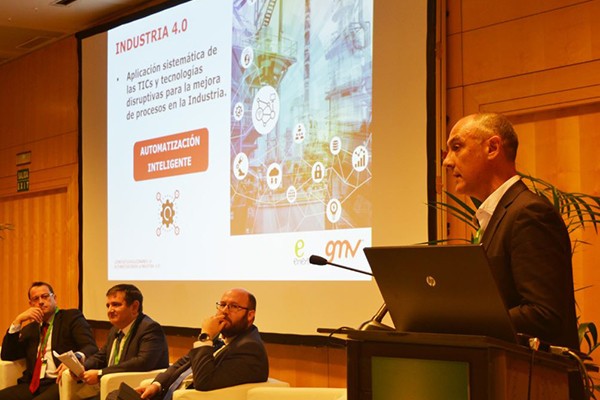Industry should evolve towards a new approach based on personalization and added value for clients

The great revolution we have been living through in recent years is an ongoing process of social, technological and economic transformations stemming from the massive takeup of Internet in the mid-nineties of the last century in successive applications to various socioeconomic environments. The development underway today is largely industry-centered. In this context innovation comes across as a strategic need in the business development. The incorporation and application of talent is also a key factor in the success of new business models that have yet to gel. All these issues were dealt with by Miguel Hormigo, Industry Sector Manager of GMV’s Secure e-Solutions sector, during his intervention in the debate on new trends and opportunities of the Smart Energy Congress.
Miguel Hormigo gave a brief account of the impact of the first industrial revolution and its similarities with what we have come to call Industry 4.0. He then went on to distinguish the convergence, personalization and technologies that have been fundamental in carrying through this new digital transformation, which is boosting operational efficiency and bringing in new business models. The paper focused above all on how the automation of Industry 4.0 is evolving, a crucial factor in achieving greater productivity, resource efficiency, quality and security. He also commented on what is still to come, such as 6G or the new breakthroughs in collaborative and virtual robotics.
In this industrial environment the new technologies are speeding up the fusion of the worlds of virtual design and physical equipment, calling for the creation of new business models destined to support digital-service-enabling IT and OT convergence. The word now is that the number of worldwide IoT connections will rise from the figure of 14.87 billion in 2016 to 36.13 by 2021. Likewise, 2018’s collaborative robot sales figure of 58,000 is expected to rise to 150,000 by 2020.
A century ago now mass production opened up new opportunities for industry and consumers, but today’s priorities have changed. Now consumers are looking to stand out from the rest, thus boosting the demand for personalized products to suit their needs, together with a concomitant change in manufacturing processes. This has spawned all the following: new services to enable clients to participate directly in personalization of the products to be purchased; subscription models; collaborative economy; Manufacturing as a Service (MaaS), Do It Yourself (DIY), among others. Another important trend brought out by Hormigo is the demand for a “greener” industry, renewable energy sources and the need for industry convergence. After all, 3 out of 4 persons belonging to the new generations would be prepared to pay more for sustainable products and services. "Industry 4.0 is not just a matter of thinking about the industrial-process-improving technology to be implemented; it’s also a question of centering on clients and giving them the very best they are demanding" argued Hormigo.
We are now in an age of uncertainty, however. Automation will wipe out jobs (as in all previous industrial revolutions) but it will also engender a great amount of new more skilled jobs that will then be in heavy demand in the job market. Examples might be robotics specialists, programming engineer or a mathematician specializing in Big Data. In any case, this connected industry will not only call for STEM skillsets; it will also demand the training of talent to create market-adapted skillsets strong on innovation, creativity, initiative, critical thinking, etc.